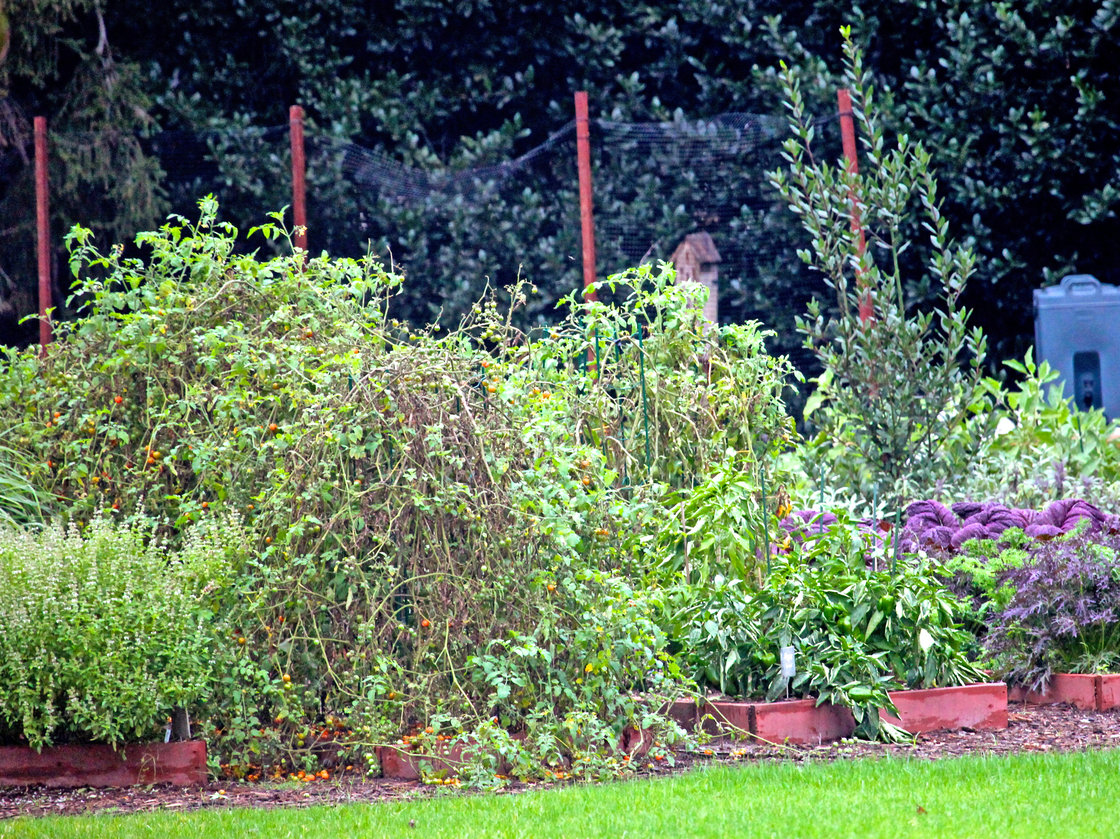
Photo: Eddie Gehman Kohan/ObamaFoodorama
Post by Eliza Barclay, The Salt at NPR Food (10/15/13)
The government shutdown has forced a lot of hard-working people into idleness. That includes most of the staff that tends the famed White House kitchen garden, according to Obama Foodorama.
On Friday, the site reported that only a skeleton crew of National Park Service gardeners remained on duty — permitted to water and remove trash, but not to weed and harvest the more than 30 kinds of vegetables growing there.
This loss of okra, tomatoes and sweet potatoes is more symbolic than anything else — the president and his family are not going to starve for lack of their fall harvest, of course.
But it's another, less obvious effect of the government shutdown on food production. And given all of the hard work that the first lady and her team have put into maintaining the garden, it's a tragedy to see tomatoes rotting on her vines.